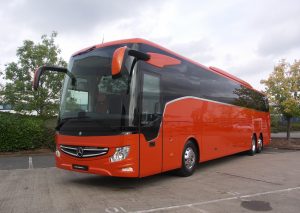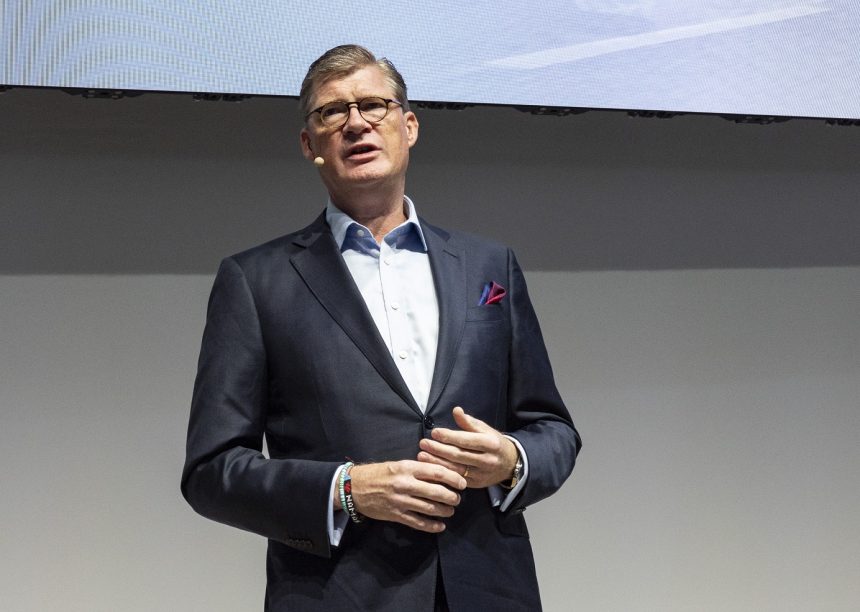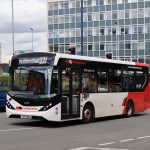The European coach market has recovered faster than predicted by Daimler Buses, but scope for the reduction of local CO2 emissions from new vehicles will be modest without support and incentives to move away from diesel.
That is the verdict of Head of Daimler Buses Till Oberwörder (pictured, above). While new urban buses can realistically become locally carbon neutral by 2030, he believes that the best achievable by new coaches in that timeframe is a 20% drop.
Coach is a much tougher proposition on CO2 reduction than bus, Mr Oberwörder says. The European Commission’s revised proposal for a 45% reduction in local CO2 emissions for heavy duty vehicle classes including new coaches by 2030 is overly optimistic, he continues.
Daimler Buses will introduce its first zero-emission interurban coach in around 2025, with that technology to debut in long-distance coaches by 2030.
Mr Oberwörder adds that the OEM’s suggested 20% reduction of CO2 for new coaches is realistic and deliverable, albeit ambitious, although significant support on infrastructure and purchase costs in the zero-emission rollout is needed to meet it.
The OEM says that both “one-off” costs associated with zero-emission vehicles and the purchase prices of such fleets require assistance. In addition, Mr Oberwörder has called for work to begin on “comprehensive” charging and hydrogen refuelling infrastructure. That is a particular challenge to coach, Daimler Buses notes. “Infrastructure has to be available everywhere,” it says.

“Incentives must also be created for entrepreneurs so that electrically powered coaches can be operated economically,” Daimler Buses continues.
The OEM has also come out against Euro 7, saying that research and development is best targeted at zero-emission. That position echoes sentiments from other vehicle OEMs aired in 2022.
Anecdotal suggestions are that application of Euro 7 may now be delayed as far as 2029, with a Council of the European Union working party having described previous proposals that centred on 2027 as “too ambitious, and even unrealistic.”
Those original plans have been described as having a “lack of proportionality” by the International Road Transport Union, which has welcomed the Council’s proposed relaxation of emission testing protocols around Euro 7.
Nevertheless, Daimler Buses’ coach outlook is rosy. Mr Oberwörder is confident that new vehicle numbers will return to 2019 levels. While that has not yet been achieved, “it is coming,” he says.



























